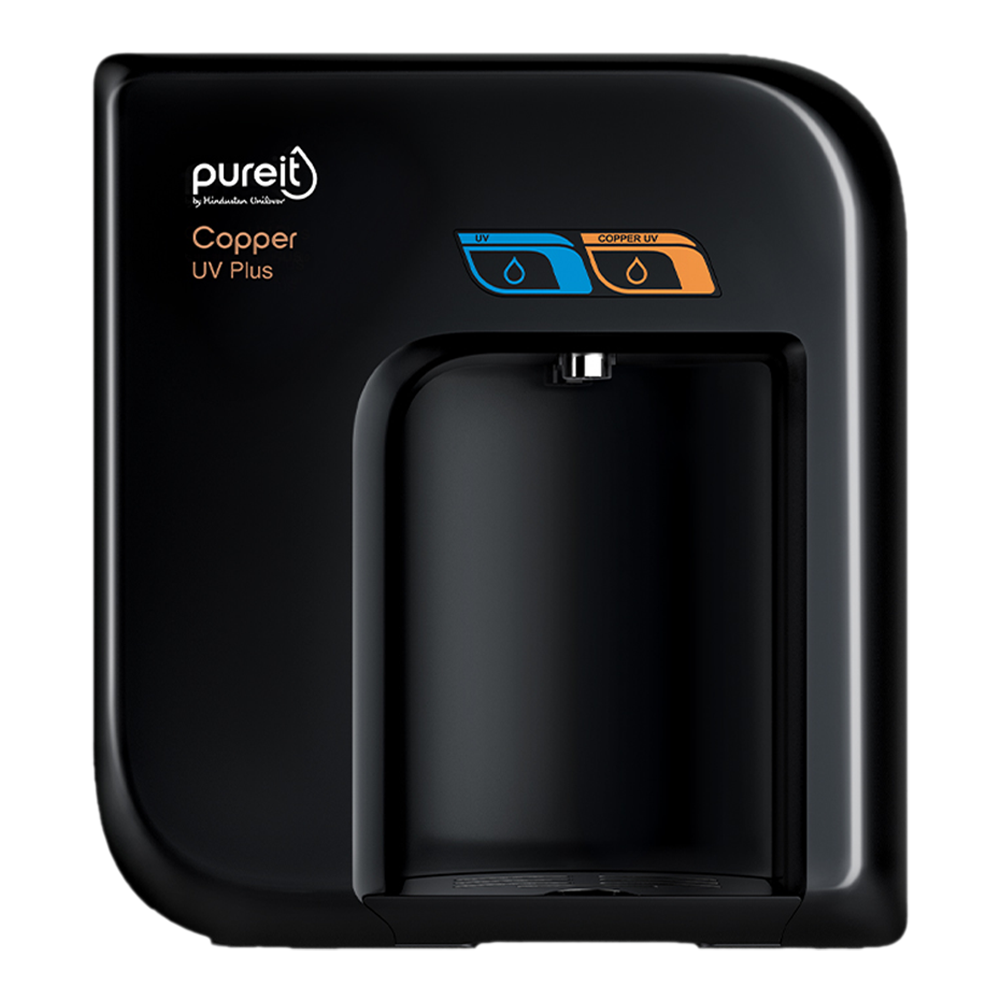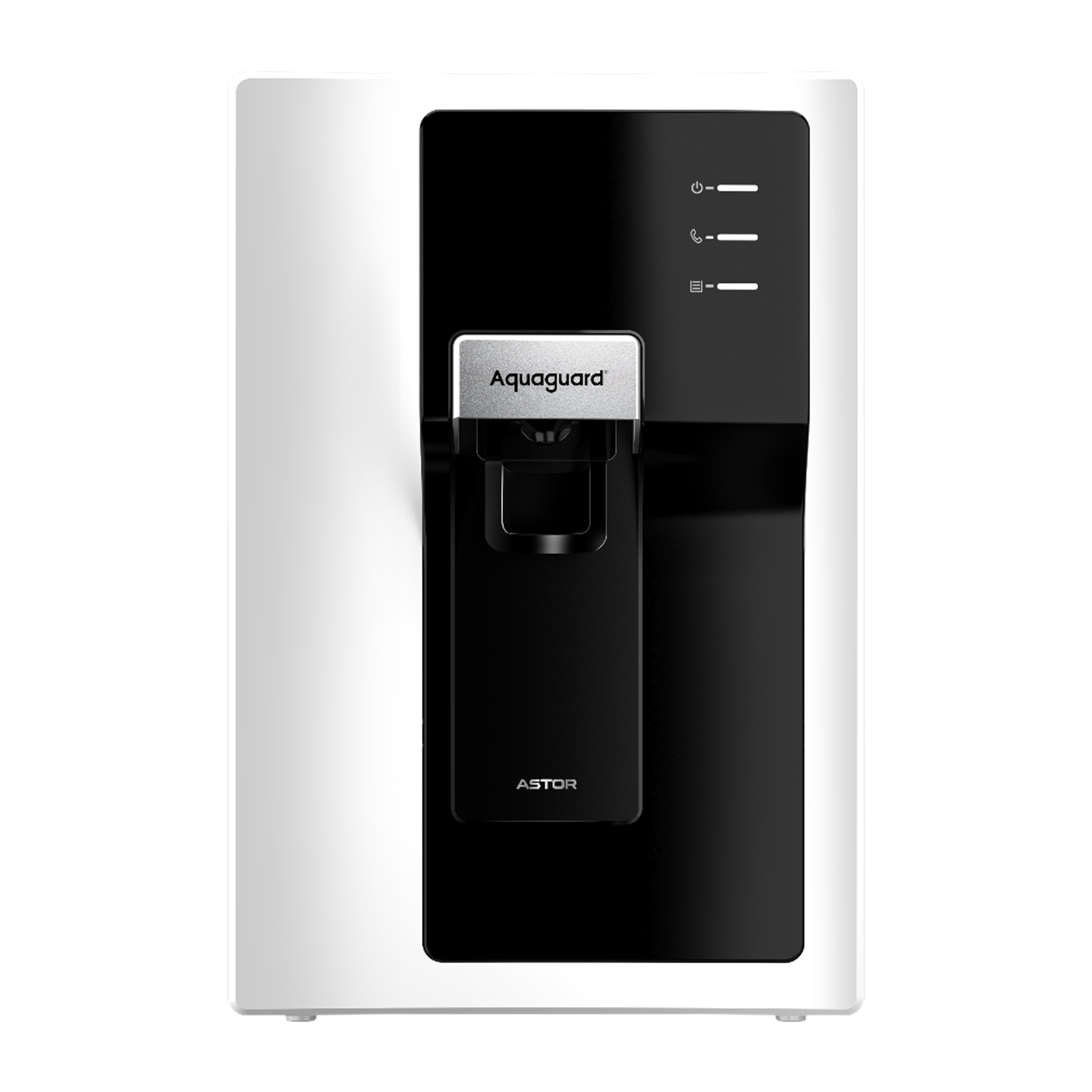For access to safe and healthy water for consumption, almost every kitchen in a household today is equipped with a water purifier. The appliance comes with either one or a combination of several different purification technologies including RO, UV, UF, and Activated Carbon purification. However, one often overlooked method of purification while purchasing a water purifier is the presence of a copper or alkaline purifying filter.
Both copper and alkaline water purifiers aim to enhance the quality of water. While there’s a possibility that some models come with both features, others are equipped with either of the purification filters. Copper and Alkaline water purifiers differ in terms of mechanism, benefits, and of course, the cost factor. It is important to know what sets them apart, and so we’ve listed down the key differences between the two here.
Copper vs Alkaline water purifiers: How they work
It’s worth noting that both copper and alkaline water purifiers may use advanced technologies like RO, UV, and UF to remove harmful contaminants.
Copper water purifiers are equipped with a container or chamber made of copper. It leverages the natural antimicrobial properties of copper to get rid of microorganisms like bacteria, viruses, and other germs. They also help in preventing any microbial growth. In fact, copper water purifiers are quite similar to storing water in copper vessels, which have been around since ancient times. However, the latter method requires the water to interact with copper for optimal purification which may not be practical in today’s times.
ALSO READ: RO vs UF purifiers: Which water purifier tech is best for you?
On the other hand, alkaline water purifiers change the pH levels of water. This is because the ideal level is between 6.5 to 8 and a low level is considered acidic and not healthy for consumption. Such water purifiers have a filtration system for removing impurities, and then there is a special cartridge that adds essential minerals. The electrolysis process involves passing water through ion exchange plates to separate the water molecules into acidic and alkaline components. The alkaline portion has higher pH levels and is dispensed for consumption.
Products in focus
Copper vs Alkaline water purifiers: Health benefits
Copper-enriched water is said to boost immunity, aid digestion, promote skin health, and also support cardiovascular health. It is also claimed to prevent the spread of water-borne diseases. However, it’s also worth noting that excessive intake of copper with a provisional guideline value of 2mg/L as set by WHO is harmful to health. Copper-supplied water often has a metallic taste that may not please everybody.
Meanwhile, alkaline water is rich in antioxidants and helps neutralise excess acidity and improve hydration. It is also loaded with essential minerals like potassium, calcium, and magnesium that enhance bone health and metabolism. The taste of the water may be slightly altered and could be sweet and smooth.
Copper vs Alkaline water purifiers: maintenance and cost
Almost every water purifier requires regular maintenance to keep it running properly in the long run. Copper water purifiers do not require maintenance often, but cleaning is still recommended to maintain their effectiveness and prevent tarnish. Meanwhile, alkaline water purifiers require regular maintenance including changing filters and cartridges. The replacement is based on the usage of water and its quality.
ALSO READ: UF purifiers vs UV water purifiers: Decoding the differences
Copper water purifiers are generally affordable whereas alkaline water purifiers tend to be more expensive upfront along with maintenance charges. However, the latter also boasts advanced technologies for the purification process.
Unboxed take: What should you get?
Copper and alkaline water purifiers have their own advantages and drawbacks, although both will ensure healthy and safe access to water for consumption. The former uses copper’s natural germ-killing properties whereas the latter has a comprehensive filtration system with added minerals. Ultimately, the choice between the two boils down to factors such as taste preferences, cost, maintenance requirements, and the like. We hope this helps.
Unleash your inner geek with Croma Unboxed
Subscribe now to stay ahead with the latest articles and updates
You are almost there
Enter your details to subscribe

Happiness unboxed!
Thank you for subscribing to our blog.
Disclaimer: This post as well as the layout and design on this website are protected under Indian intellectual property laws, including the Copyright Act, 1957 and the Trade Marks Act, 1999 and is the property of Infiniti Retail Limited (Croma). Using, copying (in full or in part), adapting or altering this post or any other material from Croma’s website is expressly prohibited without prior written permission from Croma. For permission to use the content on the Croma’s website, please connect on contactunboxed@croma.com
- Related articles
- Popular articles



















Viraj Gawde
Comments